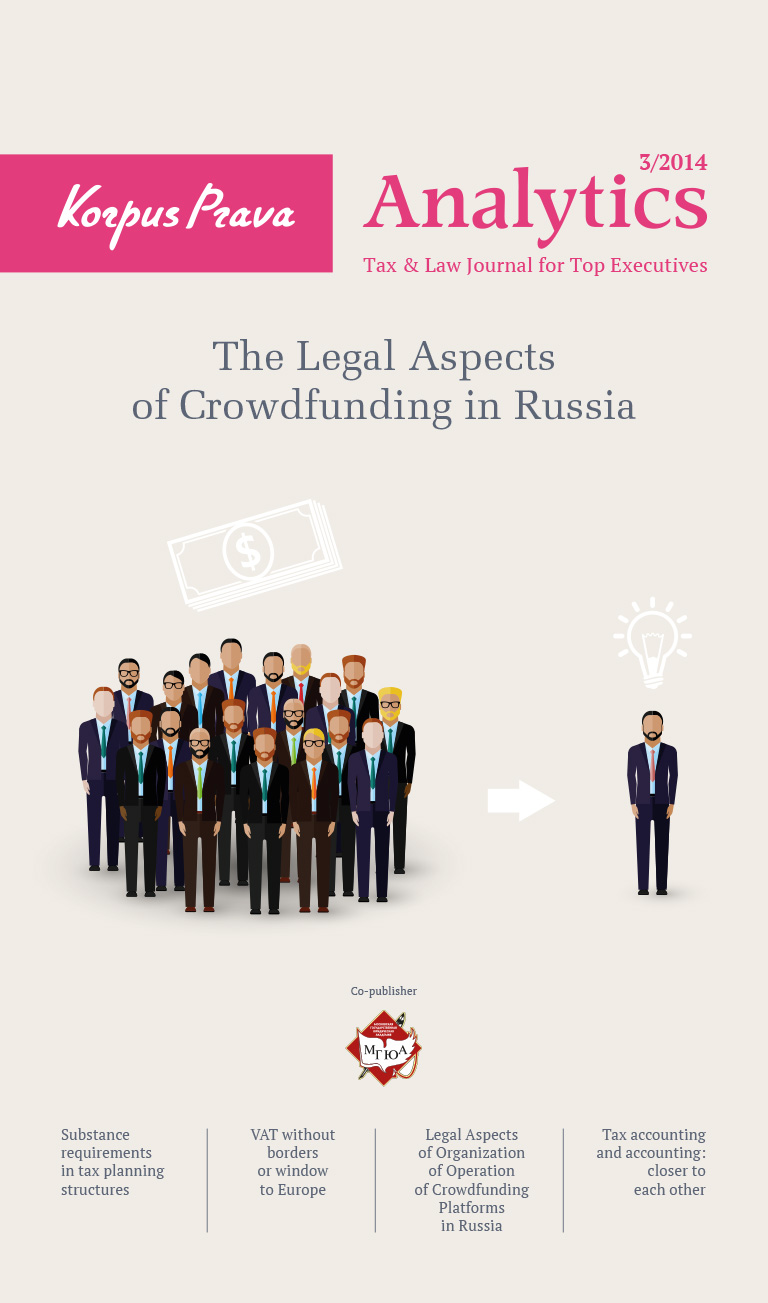- Cyprus Citizenship Scheme for Foreign Investors
- Squeezed But Pleased: Taxation of Passive Income in the European Union
- VAT Without Borders or Window to Europe
- Legal Aspects of Organization of Operation of Crowdfunding Platforms in Russia
- Substance Requirements in Tax Planning Structures
- “Deposit Splitting” of Individuals. Legal Civil and Criminal Aspects
On the Acquisition of Real Estate by Foreigners in Switzerland
Swiss real estate for private use has been en vogue for some time now. Many foreign passport holders who move to Switzerland are interested in acquiring property and others their own holiday homes for private use. There are regulatory changes planned at the federal level and the potential impact is at this stage still uncertain. Therefore, we have asked renowned real estate expert Dr. Francis Nordmann of Zurich law firm Walder Wyss Ltd to comment on what is about happened and how this may influence the freedom of movement of a buyer or owner of Swiss real estate.
Key rules regarding jurisdiction and applicable law
Foreign investments in Swiss real estate are regulated by the federal law on the acquisition of real estate by persons abroad, the so-called Lex Koller. This law requires persons qualifying as a “person abroad” to meet certain conditions, primarily in case residential real estate is involved, in order to obtain a permit allowing them to make a direct or indirect investment in real estate in Switzerland. However, should a person want to make an investment in residential real estate, the criteria for the granting of such a permits are rather restrictive.
In deals involving both assets and shares, a transaction requiring the granting of a Lex Koller permit may only be completed once the permit has been granted. Should the buyer not hold the requisite permit, the following consequences shall apply:
- The entry of the buyer into the land registry may be denied;
- A complete transaction may become null and void;
- The parties to an already fulfilled contract can claim back their contributions;
- The competent Lex Koller authorities are obligated to correct the unlawful situation by either revoking the transaction, or by forcing the buyer to sell its investment in residential real estate in Switzerland;
- The persons involved may face severe criminal charges in Switzerland.
Conditions requiring a Lex Koller permit
Real estate investments are subject to a Lex Koller permit, if:
- The purchaser or financing party (or any persons involved up to the beneficial owner of the acquiring entity) is a person abroad within the meaning of the Lex Koller;
- The acquisition object qualifies as real estate with respect to its non-commercial use within the meaning of the Lex Koller;
- The type of right in the property to be acquired qualifies as real estate.
If there are any doubts as to whether a permit must be obtained or not, a ruling request can be made to the competent authority, asking it to issue a decree stating that a permit is not needed for the specific transaction.
Person abroad
A person abroad within the meaning of the Lex Koller is:
- An individual person resident or domiciled abroad, or an individual person living in Switzerland who is neither citizen of an EU/EFTA member state nor holder of a valid permanent Swiss residence permit (C permit).
- A legal entity that is either domiciled abroad or controlled by a person abroad.
- The control of a legal entity by people abroad is assumed by law if people abroad:
- Hold or control, either directly or indirectly, more than one-third of the entity’s equity capital or voting rights;
- Provide significant amounts of debt capital to the entity, which amount to at least half of the difference between the company’s assets and its debts with respect to people that are not subject to the Lex Koller;
- Individuals or legal entities are considered as people abroad if they purchase real estate at the expense of people abroad, even though they personally do not qualify as people abroad. Such fiduciary investments in residential real estate are prohibited and may result in criminal sanctions.
Commercial/non-commercial use
Commercial use: A purchaser does not require a permit to acquire Swiss real estate if the real estate serves as a permanent business establishment for the exercise of an economic activity. Economic activities include industrial production, trading or service activities. The building, sale or rental of residential property does not qualify as an economic activity within the meaning of Lex Koller.
Exceptions:
- Real estate relating to a permanent business establishment can include residential property, if:
- The residential property is necessary for the business establishment;
- A separation from the business establishment is impossible or unreasonable;
- The residential property is mandatory due to housing unit quotas under planning or zoning regulations.
2. People abroad can purchase commercial real estate with land reserves without a permit, as long as the land reserves do not exceed one-third of the property surface area.
3. Land for development purposes can be purchased by a person abroad if the construction of buildings situated on the acquired land and dedicated to economic activities (excluding any residential use) begins within a year.
4. Any person abroad can acquire residential real estate by way of acquisition of, or merger with, a company whose main business purpose is not the acquisition, holding or sale of the residential property, and provided the value of the residential property is less than 30% of the company’s assets.
5. A person abroad subject to the granting of a Lex Koller permit may acquire a holiday apartment, provided it is located in a can tonally recognised tourist resort and there is a number of properties available. Further restrictions apply with respect to such holiday apartments (e.g. regarding size, letting possibility, etc.).
Relevant transactions
Purchasing real estate within the meaning of the Lex Koller not only means the direct purchase of real estate, but also covers transactions that give people abroad de facto control over Swiss real estate. Examples of relevant transactions are:
1.Receipt and exercise of a purchase or repurchase right or a right of first refusal.
2. Granting of financing.
3. Change of commercial into residential real estate Furthermore, de facto control over real estate can also be obtained through:
- Joint ownership or co-ownership;
- Occupancy or usufruct rights to real estate;
- Acquisition of voting or non-voting shares in a legal entity, of an interest in a company without any legal personality or of a unit of an investment vehicle whose actual purpose is the acquisition or holding of real estate.
However, there is no obligation to obtain a Lex Koller permit upon acquisition of shares listed on a stock exchange in Switzerland or regularly traded real estate investment fund units (even if such trading is off- exchange) or if Swiss real estate is inherited by closely related relatives.
As foreign persons are often not in a position to assess whether a Swiss real estate related transaction is subject to a Lex Koller restriction or is not feasible at all, legal advice should be sought prior to entering into any respective commitment.
Your subscription to our journal will definitely boost the efficiency of your specialists and downsize your expenses for consultants.
The journal is available free of charge in the electronic version.
Free Download

